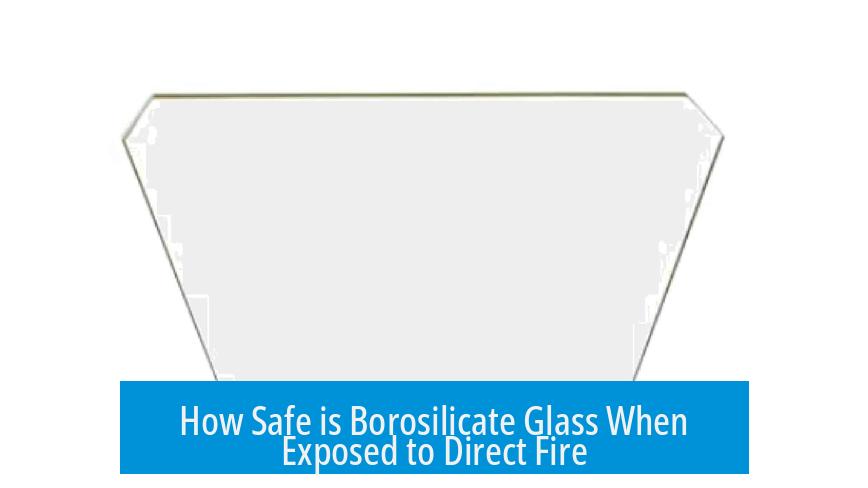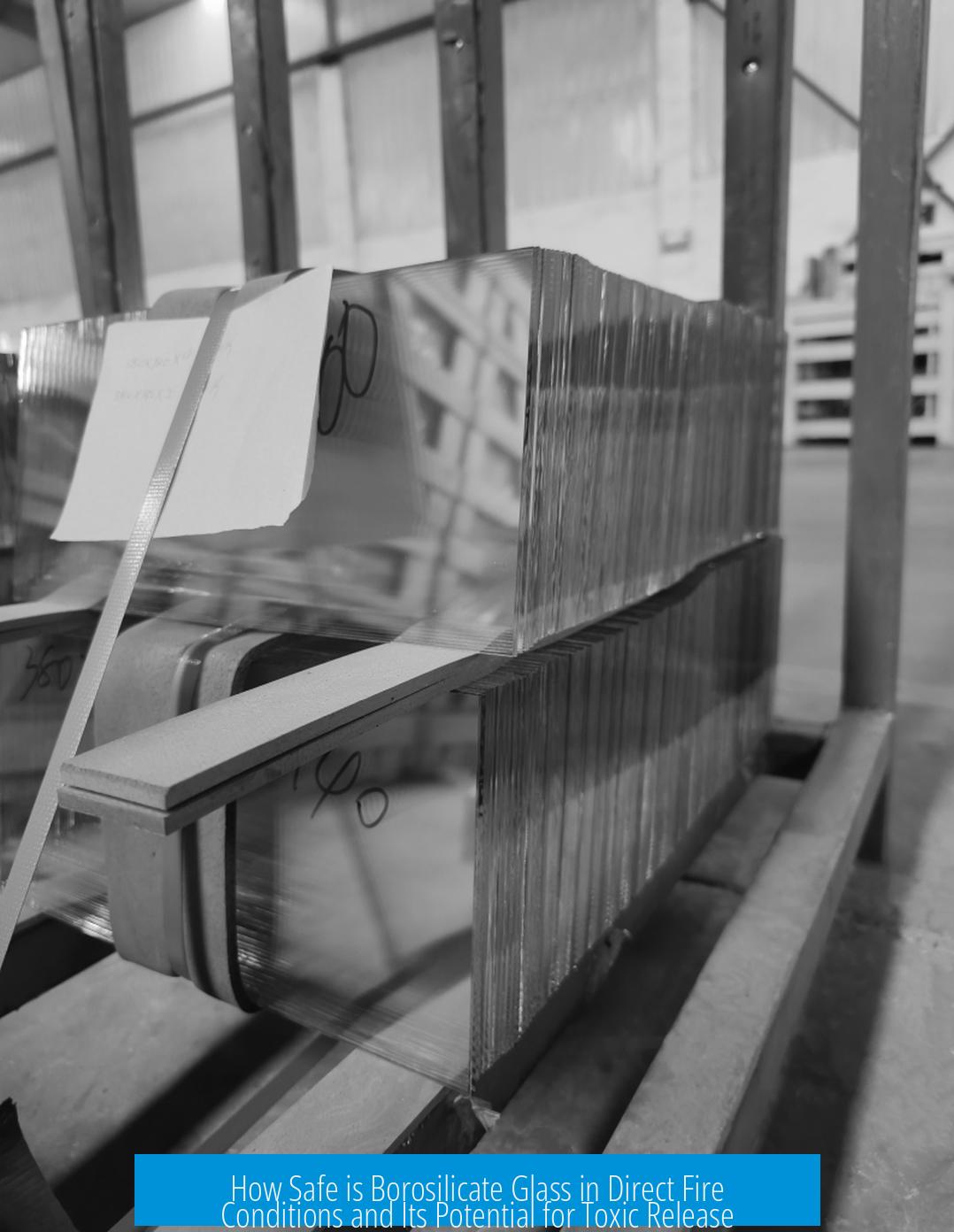How Safe is Borosilicate Glass When Exposed to Direct Fire?

Borosilicate glass remains safe when exposed to direct fire, and toxic components do not leach from it under such conditions. This glass type is well-known for its durability and chemical resistance, making it a staple material in laboratories and kitchens worldwide. No evidence supports the release of harmful substances upon heating or direct flame contact.
Properties of Borosilicate Glass
Borosilicate glass contains silicon dioxide and boron trioxide as core ingredients. This composition provides high thermal resistance and chemical stability. It easily withstands rapid temperature changes without cracking or releasing contaminants. Unlike standard soda-lime glass, borosilicate glass has a low coefficient of thermal expansion, making it ideal for heating scenarios.
- Resists thermal shock
- Does not release toxic substances when heated
- Contains boron and aluminum, elements present in everyday glass
Use and Safety in Laboratories
In chemical laboratories, borosilicate glassware is standard due to its inertness. It does not leach chemicals into solutions or react easily with corrosive substances.
This implies that when exposed to direct fire or heat, the glass does not emit toxic compounds. If it did, lab results would be compromised. The widespread use of borosilicate glass in critical experiments confirms its safety under heat.
Application in Food and Cooking
Borosilicate glass frequently serves in food storage and cookware, including baking dishes, measuring cups, and beverage containers. It safely endures oven temperatures and stovetop heating without degrading.
Scientific and practical usage indicates no leaching of harmful chemicals into food or drink, even when exposed to direct flames or extreme heat. This robustness is due in part to the manufacturing process.
Manufacturing Removes Volatile Components
The production of borosilicate glass involves very high temperatures. These conditions eliminate any volatile or toxic remnants before the glass cools into its final form. Thus, the resulting glass is free from harmful materials capable of leaching during heating or flame exposure.
Rare Risks in Poorly Made Glass
Some glassware made with poor quality control may contain heavy metals such as lead, mercury, tin, or even uranium. These contaminants can leach trace amounts over time.
However, in proper borosilicate glass manufacturing, such contamination is exceedingly rare. Even when trace metals are found, their quantities remain extremely low and generally pose no health risk. For example, traces of uranium detected in glass from certain sources showed no practical harm.
Comparison with Other Materials
| Material | Typical Metal Leaching | Safety Implications |
|---|---|---|
| Borosilicate glass | Minimal to none | Safe under heat and direct fire |
| Certain ceramics | May leach mercury or lead | Possible health risks with acid foods |
| Lime glass | Contains more aluminum, some boron | Widely used without significant risk |
Compared to ceramics and some other materials, borosilicate glass has one of the lowest risks for releasing toxic metals. In addition, some beverages like tea naturally contain more heavy metals than leach from the glass itself.
Elements in Borosilicate Glass Are Not Hazardous Here
Boron and aluminum, fundamental to borosilicate glass, appear in many types of glassware used daily. The concentrations present do not exceed safety thresholds and do not increase risk when heated. The absence of volatile components and strong glass stability prevent toxin release.
Handling Heat and Fire Safely
Borosilicate glass tolerates direct flame without structural breakdown or chemical change. It can become hot but retains its integrity. This property ensures that direct fire exposure does not pose chemical contamination risks from the glass itself.
Key Takeaways
- Borosilicate glass is safe under direct fire exposure; it does not emit toxic substances.
- Its composition and manufacturing process eliminate volatile and harmful compounds.
- Lab use confirms borosilicate glass’s chemical inertness and reliability.
- Only poorly made glass may leach trace heavy metals, usually negligible and harmless.
- Food-grade borosilicate glass does not contaminate food or drinks, even when heated.
- Borosilicate glass outperforms many ceramics and other materials regarding chemical safety.





Leave a Comment